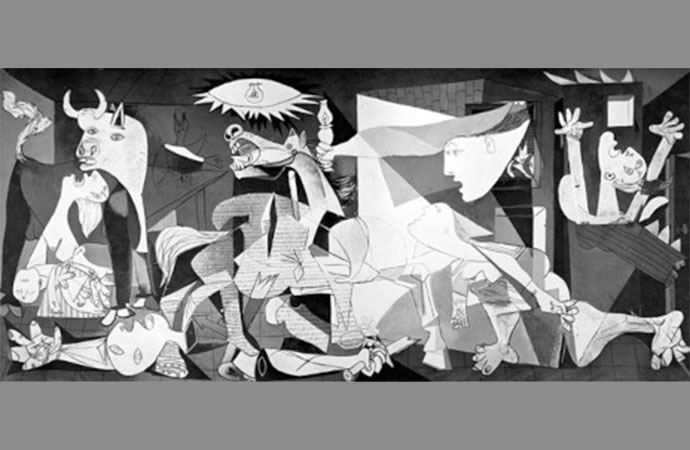Politics

Manmohan Singh, India’s prime minister from 2004 to 2014. Photo: AP/ UNB
Former Prime Minister Singh’s modesty and low-key style made it easy for many to overlook his achievements in boosting India’s economic growth and elevating its global standing. His death, at 92, has thrown a spotlight on an impressive record.
The passing of Manmohan Singh, India's prime minister from 2004 to 2014, has led to an unexpected eruption of nostalgia and appreciation. Singh's modesty and low-key style made it easy for many to overlook his achievements in boosting India's economic growth and elevating its global standing. His death, at 92, has thrown a spotlight on an impressive record.
Singh will be remembered as one of the world's most important - and most unlikely - political leaders. I first met him in the late 1980s in the East Delhi housing complex where my family lived at the time. Singh had finished his term as governor of the Reserve Bank of India and was looking to buy a simple apartment in our locality. A friend of mine called to ask if he could bring Singh to see ours.
Sing came and met us and chatted with my mother. But he never moved to the area, because soon thereafter he was appointed secretary-general of the South Commission in Geneva; and, after that, in 1991, he became India's finance minister In 2004, my mother called me, excitedly informing me that the soft-spoken, unassuming Singh had just become India's Prime Minister.
In 2009, when I was chair of the economics department at Cornell, Singh invited me - quite out of the blue - to join his government as chief economic adviser I agreed, but only if he assured me regular, direct access to him. He said he would, and he did. I met with him about once a month and got to know him well during nearly three years in his government.
By that point, Singh had already laid the groundwork of India's economic liberahzation, with the most important reforms carried out between 1991 to 1993, when he was finance minister. The transformative effect was evident from the subsequent acceleration in India's economic growth. India's early investment in the sciences and engineering during this period nurtured talent not only in research and development but also in corporate leadership and policymaking.
Singh's sharp intellect was guided by a sure moral compass. Former US President Barack Obama rightly described him as a person of "uncommon wisdom and decency." While the electorate often took this to be a sign of weakness, his modesty was rooted in self-confidence. He felt no need to proclaim his talents from the rooftop. He was unruffled by criticism and saw no sense in attacking his critics.
In 2005, when he visited Delhi's Jawaharlal Nehru University, well- known for left-wing activism, students with black flags turned out to protest. The university authorities were embarrassed and furious, and offered to take strong action against the students. Show-cause orders were sent to some students, and the Delhi police also detained some.
It was Singh who intervened on the students' behalf, arguing that they were exercising their "democratic rights." Later, in a speech at the university, he quoted the famous aphorism attributed to Voltaire: "Every member of a university community, if he or she wishes to aspire to be worthy of the university, must accept the truth of Voltaire's classic statement: 'I disapprove of what you say, but I will defend to the death your right to say it.' That idea must be the cornerstone of a liberal institution."
It was also a cornerstone of Singh's own political career. Because he took ethics seriously, he insisted on the highest standard of honesty. When, in 2010, inflation was raging and some bureaucrats suggested that it might be best not to hurt his political standing by releasing so much price data, he put his foot down, insisting there should be no compromise on statistical transparency, even if it dented his poll numbers.
This raises a puzzling question. In a world where political success seems to depend so much on intrigue, dissimulation, and subterfuge, how did such a person make it to the top?
My belief is that he would not have made it on his own. It was the political leadership of the time that recognized the need for a person of his talents to have the space to craft and implement seemingly unpopular economic policies. This space was provided by then-Prime Minister Narasimha Rao's appointment of Singh as finance minister in 1991, by Congress party leader Sonia Gandhi appointing him as prime minister in 2004, and Singh's finance minister, Pranab Mukherjee, who worked closely with him from 2004 to 2014 and managed much of the politics.
This enabled him not only to design necessary economic reforms, but also to implement reforms which bolstered India's democracy, such as the Right to Information Act and the Mahatma Gandhi National Rural Employment Guarantee Act of 2005, which gave ordinary citizens some potential levers to hold the newly liberalizing state accountable.
It was this pairing of politics and professional acumen that put India on its upward economic trajectory, and it was Singh who embodied it. Indians today are far better off as a result and, recognizing this, are bestowing well- deserved praise on him and his legacy.
From Project Syndicate

























Leave a Comment
Recent Posts
Pedaling Through the Mangroves ...
The journey from the bustling streets of Barishal to the serene, emera ...
Why the Interim Government mus ...
Two weeks out from what is expected to be a red letter day in the figh ...
Doesn’t matter who thinks what about Bangladesh deci ..
The Other Lenin
US President Donald Trump said his administration
Govt moves to merge BIDA, BEZA, BEPZA, MIDA